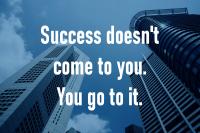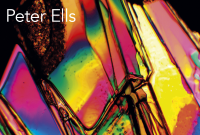

Search:
Contents:
- CHAPTER 1 HOW TO SUBMIT AN INQUIRY
- CHAPTER 2 WRITING YOUR PROPOSAL
- CHAPTER 3 THE CONTRACT OFFER
- CHAPTER 4 AUTHOR SERVICES
- CHAPTER 5 THE EDITORIAL AND PRODUCTION PROCESS
- CHAPTER 6 MARKETING YOUR BOOK
- CHAPTER 7 FAQs
- CHAPTER 8 ROYALTIES
Are you ready for the truth about yourself?
From Beyond Us by Fred Matster (IFF Books)
Fred Matser is the author of Beyond us. A collection of essays that confront us with our dysfunctional yet unexamined ways of being and living in the early 21st century.
Are you aware of how often we occupy our awareness with thoughts? How often these thoughts are related to forms of chaos and the strife to somehow resolve this chaos?
Our thoughts travel repeatedly through beaten paths. Are we still able to wander into unknown territory? Do we dare to explore the unknown? Are we able to trust our intuitive compass, instead of being prisoners to our thinking? Do we allow ourselves to be informed by our feelings, instead of being constantly overwhelmed by what our rational mind has to say? ‘Where' are our thoughts and awareness? Do they have locations? What are our goals in life? Will we ever achieve them? Is death the end of our string of goals? Or is the experience of life in the present moment the goal, as opposed to events in the past or future?
Maybe life is like a sailing trip where one goes from buoy to buoy without making the buoys the purpose of the trip. What is the true meaning of a sailing trip? Does it fulfill us? And if not, why not? Is life a given or a gift? If it’s a gift, can we be grateful for the gift? Where or to whom is our gratitude directed: to something expressed in the physical, observable world, or to God, to Infinity, to Unconditional Love?
Life doesn’t run only through us, humans, but also through dogs, birds, pigs, trees, ants, daisies and even other expressions of existence, such as cells, molecules, minerals, mountains, planets and the Universe at large. Does it all really exist or is it just an experience in consciousness, our consciousness?
We, humans, have the ability to exchange information by communicating through words and concepts. Is this an advantage over the millions of species that communicate in different ways? Look at how humans have caused chaos on all levels, such as wars, terrorism and environmental destruction, including climate change. Have we ever considered the possibility that this is happening partly because we have allowed communication through mere words and concepts—often disconnected from our most basic feelings and intuitions—to be the dominant form of information exchange in our society? Are we still connected with our own hearts and those of other living beings?
Starlings, flowers, trees, fungi, bees, ants, etc.: they communicate without words and remain harmoniously integrated in the dynamics of nature. It is as though they allowed themselves to be guided by a higher intelligence of an instinctual, intuitive character; an intelligence that permeates all forms of existence but belongs to none. We humans, on the other hand, seem to put conceptual reasoning on a pedestal, thereby cutting ourselves off from that higher intelligence. We often fail to see the boundless, timeless intelligence immanent in—but also transcending—conception, growth, flowering, decay and death.
We can—like, for instance, starlings— ‘co-mmunicate,’ co-ordinate and co-operate as well: when we play music, we do it together with one another, not against one another. The resulting harmony feels intuitively good to musicians and audience alike, which gives us a clue about the meaning and purpose of life. Another example of this kind of playfulness in togetherness is tennis: it feels good to stretch the physical limits of one another while keeping the ball in play. This way of playing together puts us in a state of flow. But once we turn such a co-operative dance into a competition, the idea is no longer to keep the ball in play but to discontinue the flow. We call it ‘to win’ and proceed to honor the person who breaks the natural cycle. Playing together is inclusive, while competing to win is exclusive. Imagine if we would make love in the same way that we play competitive tennis.
We are so often our own misunderstanding: in an all-inclusive system, we seek to exclude. Based on fear, we see scarcity on an individual and collective level, and so we compete. The alternative is to compare with care in order to share with care. Indeed, a more modest, less egotistic attitude to life would be most helpful and healing. If only our social value systems—as expressed through the media—would reflect this alternative attitude, the human mass-mind would take a turn from exclusion to inclusion. For life’s purpose may be to heal and become one with the Whole-and-All; and to help one another—human or otherwise—in that process.
The sprinkles of thought above are basically the tone of the book, which aims to train our minds and hearts to be more flexible and loving.
Happy discovery and reading.
Miles of smiles, Fred Matser
Beyond us is available from IFF books and from wherever books are sold
READ BEYOND US TODAY
CLICK NOW If you want to end war and inequality
COMING SOON
Do you have a dream of being a published author?
Collective Ink is an independent publisher with sales teams worldwide welcoming new authors and unsolicited manuscript submissions.
We publish Fiction and Non-Fiction, across 24 imprints.
We build long-term backlists (our books never go out of print), discover and develop long-term relationships with stand-out authors and publish best-in-class series.
For our authors, we provide an automated production system, forums, a marketing database with over 40,000 contacts and other online tools to produce and market each book. We partner with our authors on marketing, reaching all the traditional bookstore markets for print books, worldwide, and all online retailers.
Everything is based on transparency. Authors can see everything that’s going on, including monthly accounts. They have access to our contacts database, can add to it, can even get involved in the business. Most of the people working here came into it as authors.
And it doesn't get any more transparent than this: below you will see a real-time snapshot of the data in our system. The numbers are just presented here to demonstrate the kind of company we want to be... where authors pool resources because we are stronger together.
Categories:
0 comments on this article


















